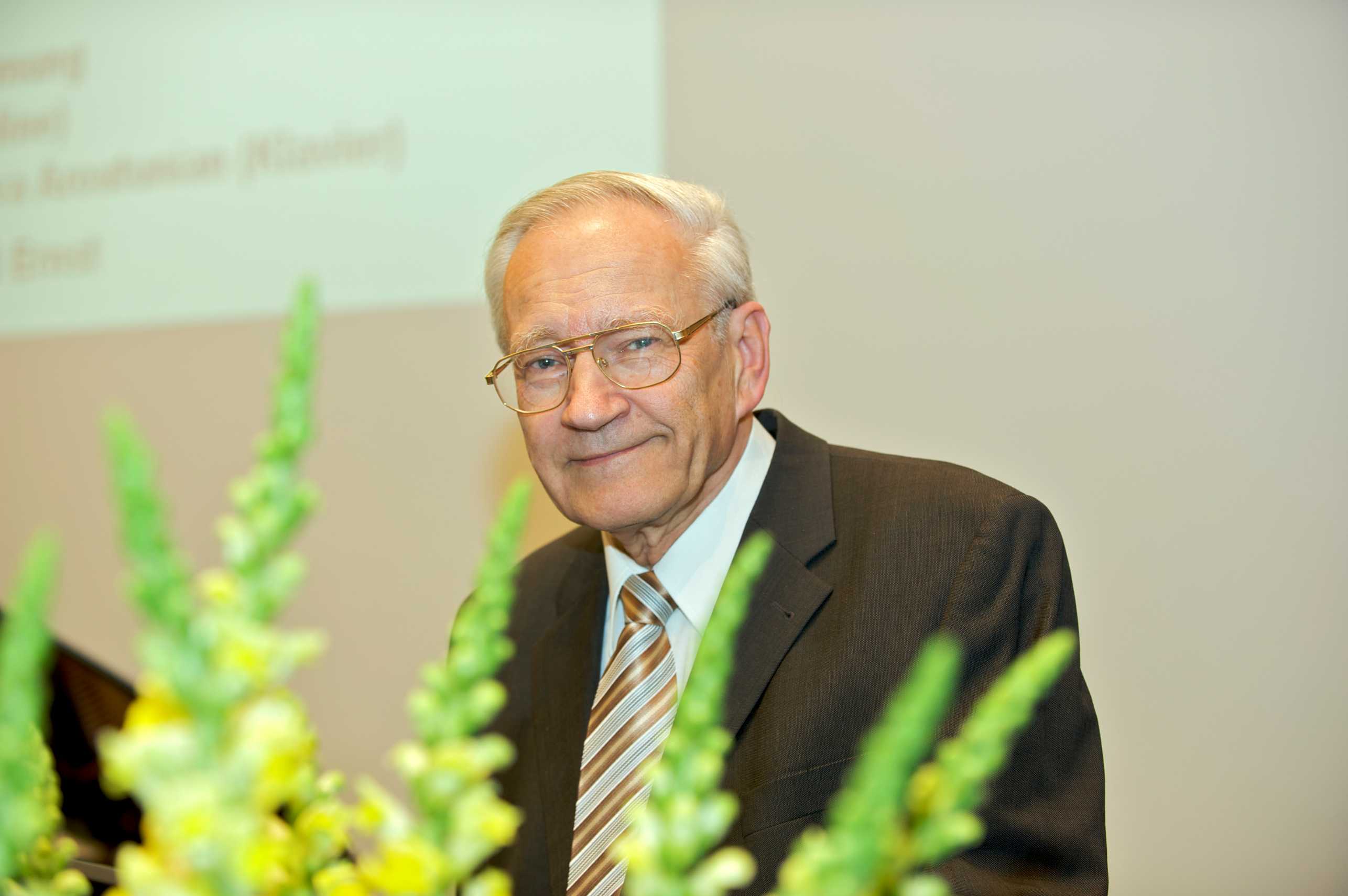Obituary for Professor Richard R. Ernst

The past and present professors, staff and students of the Laboratory of Physical Chemistry, ETH Zurich, are sad to announce the loss of
Prof. Dr Dr h.c. mult. Richard R. Ernst
who died on the 4th of June 2021 at the age of 87.
Richard R. Ernst studied chemistry at ETH Zurich, completing his dissertation thesis on the topic of nuclear-magnetic resonance (NMR) spectroscopy. After earning his doctoral degree in 1962, he joined Varian Associates in Palo Alto, California, where he carried out research from 1963 to 1968. In 1968, he returned to ETH Zurich, first as a lecturer, then as an Assistant Professor and from 1976 as a full Professor until his retirement in 1998.
Richard's name is closely associated with the development of modern NMR. While still in the USA at Varian Associates, he developed the method known as Fourier Spectroscopy. This method not only enabled the NMR signal strength to be increased and thereby to reduce the time required to carry out measurements, but also provided the foundations for multidimensional NMR spectroscopy, which he developed after his return to ETH Zurich. He immediately recognized the potential of the idea of multidimensional spectroscopy and developed the necessary spectrometers as well as the algorithms and software to carry out and analyse the experiments. With this, he also became a pioneer in introducing laboratory computers into scientific research. He recognized the potential of NMR for imaging and laid important foundations of the technology which today can be found as MRI scanners in many hospitals.
For many years, Richard's research group was one of the leaders in the continual development of NMR spectroscopy in solids, liquids and solutions. In this way, they established NMR spectroscopy as an irreplaceable method in chemistry and biochemistry. The new measurement concept was applied to solve concrete open problems in science, in particular in the field of structural biology, in which NMR spectroscopy is used to elucidate the structure of proteins.
Richard Ernst was not only a creative scientist who had an enormous influence on physical chemistry and far beyond, but also an outstanding teacher, who excelled at explaining complicated concepts in an understandable way. He granted his doctoral students and postdocs a lot of freedom, while at the same time demanding high standards, most of all from himself. Many of his past students now hold positions of high responsibility in academia, industry and society.
Richard Ernst always held in high regard the transfer of knowledge to industry and many of his ideas have influenced product development. The Richard R. Ernst lecture has been held at the Laboratory of Physical Chemistry since 2009, which according to his initiative is dedicated to the dialogue between science and society.
One of Richard Ernst's many qualities was his faithfulness to his family, his hometown of Winterthur, Switzerland, ETH Zurich, the Department of Chemistry and Applied Biosciences, our institute and his colleagues. He also had a great capacity to generate creative force from opposite poles, a sense of irony (also towards himself) and the courage to give untempered criticism where it was due. To this end, he had invented an alter-ego, "Felix Pech", the lucky-unlucky one, who was used to address delicate matters without ambiguity. In many ways, Richard was a role model for us all in the Laboratory of Physical Chemistry. As a person and a scientist he was always searching for truth and set great store by this. This included a strong sense of responsibility, namely "the responsibility of the mighty towards the weak, the responsibility of the researcher towards society, the responsibility of the wasteful of today towards those who might suffer in the future".
Richard Ernst was awarded many honours and prizes for his scientific work, amongst others the ETH Zurich medal for his doctoral thesis (1962), the Ruzicka Prize of ETH (1969), the Marcel Benoist Prize (1986), the Ampere Prize (1990), the Wolf Prize for Chemistry (1991), the Horwitz Prize in Biology and Biochemistry (1991) and the Nobel Prize for Chemistry (1991). He held more than a dozen honorary doctorates, among others, from EPFL, TU Munich and the universities of Zurich, Bern, Montpellier, Prague and Antwerp. He was a member of the US National Academy of Sciences, the Royal Society, the German National Academy of Scientists Leopoldina, the Russian Academy of Sciences, the Korean Academy of Science and Technology and an honorary member of many other scientific societies.
Richard Ernst's work and ideas were often well ahead of his time. He was one of the great scientists of the second half of the 20th century. It was an unbelievable privilege to work with Richard and to continue his research.